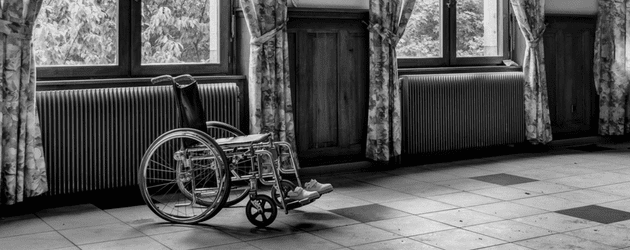
Amyotrophic Lateral Sclerosis is a disease with no known cause or cure. On the occasion of the international day to raise awareness of the disease, we look at how biological medicine can improve patients' quality of life.
The Amyotrophic Lateral Sclerosis (ALS) is a degenerative disease which weakens the neurons responsible for controlling voluntary movement muscles such as chewing, walking and gait, leading to total paralysis of the patient. Unfortunately, to date, there is no curative therapy, with life expectancy ranging between three and five years from the onset of the disease. A reality which forces health professionals to improve the daily life of those affected by slowing down the deterioration of the body. and alleviating the consequences of this harsh process.
Although the causes of its origin are unknown, 10% of the cases, according to the latest publication of the Ministry of Health "Abordaje de la Esclerosis Lateral Amiotrófica", are hereditary. The rest, the majority of cases, are considered sporadic. Symptoms at the onset of the disease can be so subtle that they are often overlooked. In general, the Early signs include muscle weakness or stiffness, cramps, slurred or nasal speech, or difficulty chewing or swallowing.
Early detection of the warning signs of ALS is essential. Eighty percent of patients usually develop symptoms such as dysphagia (difficulty swallowing), dysarthria (speech disorder) and loss of coughing ability. Detecting these Early detection of symptoms helps us to establish the correct therapeutic measures.The main reasons for this are: the lack of a good quality of life and the lack of a good quality of life, related to increased survival.
Scientists do not yet know why it attacks some people and not others. However, some studies suggest that the environment plays an important role in their development. In fact, several factors are suggested: on the one hand, ALS is related to the accumulation of free radicals that cause the death of brain cells in the motor neuron. Other causes include toxicity of the organism by external agents, oxidative stress, mitochondrial damage or autoimmunity.
In this sense, and aware that Amyotrophic Lateral Sclerosis is a disease that cannot be cured, The progression could be slowed down by acting on the following factors. At Biosalud Day Hospital we work to assess and analyse illnesses holistically. To do this, we have a series of very precise tests that tell us which aspects are unbalancing the organism in order to act on them, improve the quality of life and prolong, to a certain extent, the patient's autonomy. We directly attack those risk agents considered most relevant, such as exposure to heavy metals, chemical products and electromagnetic radiation, associated with work activity. In fact, the average age of onset of ALS is usually between 50 and 60 years, at the end of the patient's productive period.
In our treatment protocols, we apply techniques such as the ozone therapythe molecular hyperthermia or cell regeneration.
Despite being considered a rare disease, Amyotrophic Lateral Sclerosis (ALS) is one of the best known diseases worldwide. Thanks to viral campaigns such as "Get Wet for ALS", "Get Wet for ALS", "Get Wet for ALS" and "Get Wet for ALS".The first of its kind, launched in 2014 in the United States, and to patients who have suffered from it such as the scientist Stephen Hawking, have raised public awareness of the seriousness of the disease, brought patients out of social ostracism and raised significant sums of money to advance research.
As long as a cure is not achieved, the fight for biological medicine at Biosalud Day Hospital continues to improve the quality of life of patients. Studies are progressing and economic, technological and, above all, social support is increasing thanks to celebrations such as the World Day for the fight against Amyotrophic Lateral Sclerosis. In 2018, with the The slogan "Life is not cut short. ALS exists", we once again join in this celebration. to give a voice to this disease, which is more common than it seems. In fact, it is the third most common neurodegenerative disease, after dementia and Parkinson's disease, and it is the most common neurodegenerative disease in the world. the most common motor neurone disease in adults. In Spain, 900 people are diagnosed each year and there are currently more than 3,000 people suffering from it.


4 thoughts on “La Medicina Biológica desafía a la ELA para mejorar la calidad de vida de los pacientes”
Hello, I have a family member who has been suffering from ALS, I would like to know more about the treatments to improve and give quality of life.
Thank you for your interest in Biosalud Day Hospital. Our medical team will shortly send you an email to the contact address you indicated in the form with information about our treatments. Regards
Hello, my father suffers from ALS, he is 59 years old.
I would like to know what type of treatment you can offer for the
thank you
Thank you for your interest in Biosalud Day Hospital. Our medical team will send you an email shortly to the contact address you provided.
Comments are closed.